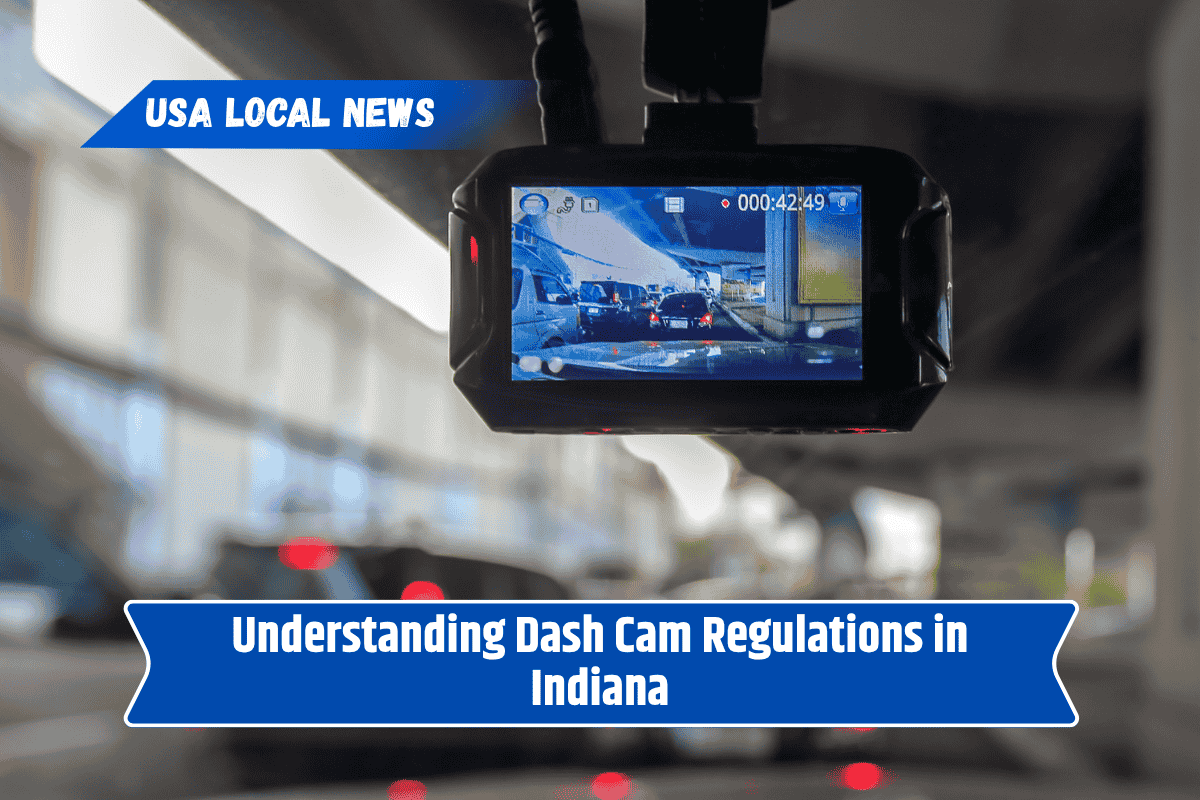Dash cams, or dashboard cameras, have become increasingly popular for drivers in Indiana and across the U.S. They can provide valuable evidence in the event of an accident, help with insurance claims, and improve driving behavior.
However, like any technology, it’s important to understand the rules and regulations surrounding their use. Here’s what you need to know about dash cam regulations in Indiana.
Are Dash Cams Legal in Indiana?
Yes, dash cams are legal in Indiana. You can use a dash cam in your vehicle without worrying about breaking any state laws. Indiana law does not prohibit the use of dash cameras.
In fact, dash cams can be very helpful in capturing important details in the event of a traffic accident or dispute. As long as the camera does not obstruct your view while driving, it can be used freely.
Key Points to Keep in Mind:
Mounting Location: Dash cams should be mounted in a way that doesn’t obstruct the driver’s view of the road. In Indiana, as with most states, your camera must not block the driver’s line of sight to ensure safe driving.
For example, placing a camera on the windshield should be done in a location that doesn’t interfere with your view of the road or your ability to drive safely.
Obstruction of View Law: Indiana law has a general rule about objects obstructing the windshield, so it’s important to place the dash cam in a location that doesn’t block any part of your view while driving. Mounting the camera behind the rearview mirror, or on the lower corner of the windshield, is a good practice.
Recording Audio
While dash cams can be used to record video, audio recording can be more complicated. Indiana is a one-party consent state when it comes to recording conversations. This means that as long as you are a part of the conversation being recorded, you don’t need permission from other parties.
Recording Conversations in Public: If your dash cam records audio in public spaces (such as while driving), it’s typically legal, as long as you or the person recording are part of the conversation.
Recording Private Conversations: If you’re recording conversations between other people without their consent, it could potentially violate Indiana’s wiretapping law, especially if they have a reasonable expectation of privacy.
To avoid potential legal issues, it’s best to ensure that your dash cam only records audio when necessary or when you are part of the conversation. Many dash cams have the option to turn off the audio recording feature.
Using Dash Cam Footage as Evidence
Dash cam footage can be valuable evidence in the event of an accident, dispute, or legal matter. In Indiana, footage from a dash cam can be used in court, but there are some things to consider:
Admissibility in Court: Dash cam footage can be presented as evidence in a trial if it’s relevant to the case. However, like any evidence, the footage must be clear, reliable, and properly authenticated to be used in court. If the footage is tampered with, it may not be admissible.
Privacy Concerns: Be aware of the privacy of others in public spaces. Even though dash cams record public interactions, you should be careful about capturing private conversations or violating the privacy of individuals while recording in private areas.
Dash Cams and Insurance Claims
Many insurance companies encourage drivers to use dash cams, as the footage can provide clear evidence in the case of an accident.
In Indiana, dash cam footage can help resolve disputes in accidents by showing exactly what happened during the incident. This can be especially helpful in cases where there’s a dispute about who was at fault.
Claims Process: If you are in an accident and the footage shows that you were not at fault, you can provide the dash cam footage to your insurance company to help strengthen your case. Conversely, if another driver disputes your claim, your footage could help prove your version of events.
In Indiana, dash cams are legal to use, as long as they don’t obstruct your view while driving. They can provide valuable evidence in the event of an accident or legal dispute, but it’s important to follow regulations, especially when it comes to audio recording and the privacy of others.
Mount your dash cam responsibly, be aware of what it records, and understand that dash cam footage can be helpful in proving your side of the story in insurance claims or court cases.
